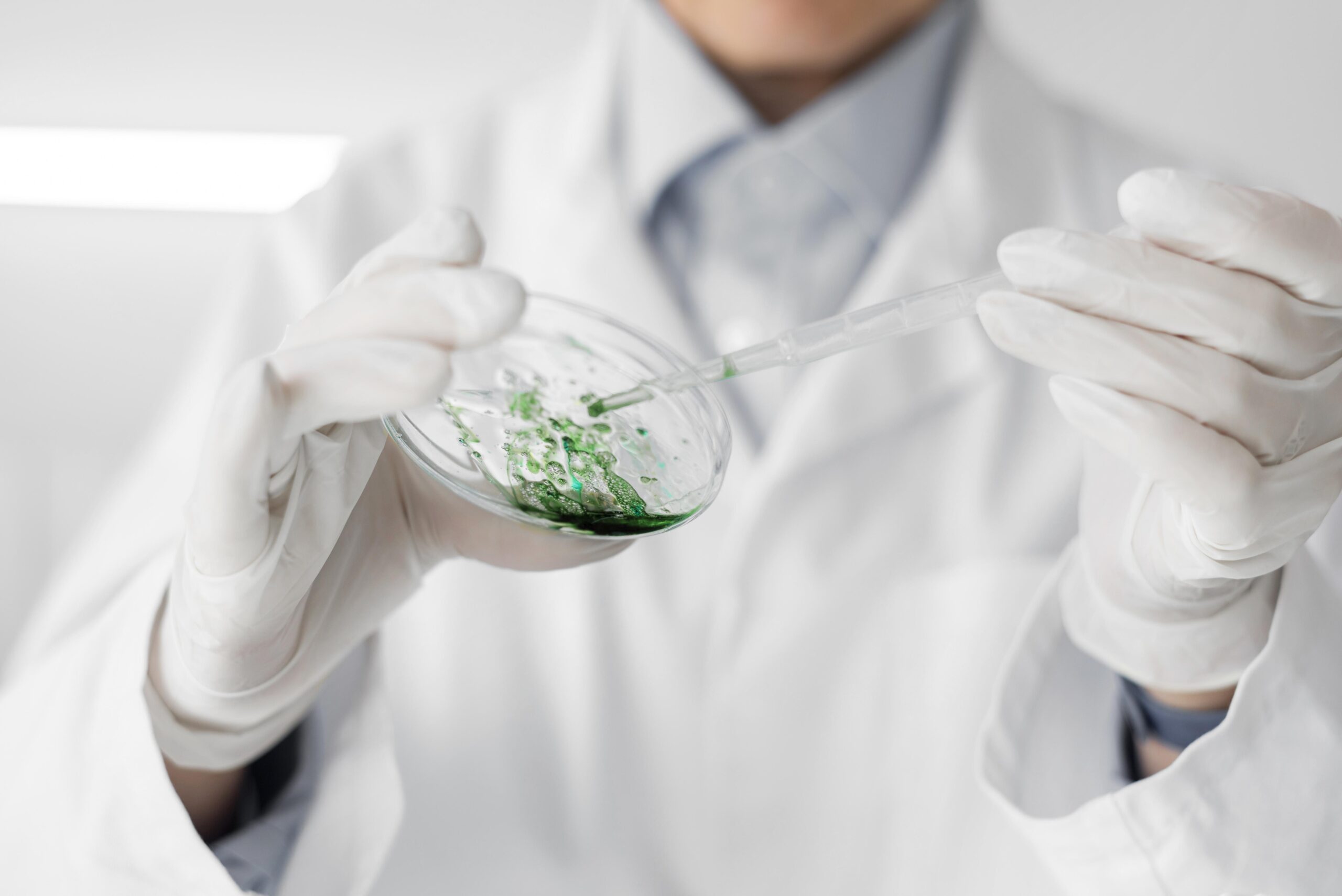Phytogenics are taking the spotlight in the animal feed industry. But what is phytogenics? Why is it considered the future of animal health? Phytogenics, are heterogenous compounds, that were introduced to animal nutrition as an alternative to antibiotic growth promoters (AGPs). Due to the multifunctional benefits, phytogenics are winning the animal health care segments. Let’s delve into the world of phytogenic feed additives (PFAs) to understand their advantages, trends, and challenges faced by the poultry and livestock industry.
What are phytogenic feed additives?
Phytogenics are powerful bioactive compounds that are believed to offer the same benefits as antibiotic growth promoters (AGPs) without posing any threat to animal health. Phytogenics are substances derived from plants, which include compounds such as essential oils, herbs, spices, etc. The word ‘Phytogenics’ is a commercial word which was coined in the 1980s. The word ‘phyto‘ means ‘plant‘ and ‘genics‘ means ‘origin‘. Phytogenics are commonly referred to as botanicals, plant-derived extracts, phytoactives, or phytogenic feed additives (PFAs).
Phytogenic additives fall into two main categories: plant extracts and phytochemicals. Plant extracts include essential oils, while phytochemicals encompass components like thymol, allicin, curcumin, menthol, eugenol, and others. These phytochemicals can either be naturally sourced or synthetically produced, depending on cost and availability.
Plants produce various types of compounds which are referred to as phytochemicals. These phytochemicals help in defence mechanisms or communication in plants. Some of these phytochemicals present in plants are beneficial for animal and human health. Phytogenics in animal feed boast antimicrobial and anti-inflammatory properties that can significantly enhance animal health by maintaining body weight, stress management, preventing infections, and supporting optimal production, etc. With such comprehensive benefits, phytogenics are quickly becoming the go-to choice for farmers.
What are the examples of phytogenics?
Some of the examples of phytogenic feed additives include saponin, tannin, curcumin, menthol, eugenol, and others.
Did you know phytogenics can be readily available in kitchens?
For instance, capsaicin found in pepper aids digestion and enhances palatability, while cinnamaldehyde in cinnamon offers strong antimicrobial properties.
Advantages of phytogenics in animal feed:
The benefits of phytogenics in animal nutrition are boundless. Rooted in nature, these compounds offer immediate solutions for tackling specific diseases and can be consumed in recommended doses to protect against infection outbreaks. Take coccidiosis in poultry, for example— a common threat. Phytogenics in poultry, when mixed into feed at the right dosages, play a vital role in preventing such outbreaks. Some of the advantages of phytogenics in animal nutrition include:
Multifunctional in Nature:
Feed phytogenics have multiple functions. For instance, rosemary is rich in phytochemicals such as rosmarinic acid, chlorogenic acid, and cineol. These natural compounds deliver potent antibacterial, antiviral, and anti-inflammatory effects, all while being loaded with antioxidants. Therefore, one plant can have various healing properties.
Impact on Climate:
As the global population continue to rise, our resources, such as water, farmland, and labour will become increasingly scarce. Therefore, it is our responsibility to utilize the raw materials and resources more efficiently to meet future demands.
Milk production generates significant methane emissions and demands vast amounts of water. This is where phytogenic solutions for livestock can make a real difference.
Phytogenic feed additives, derived from plants, help reduce methane emissions in livestock by altering rumen fermentation processes. These additives can inhibit methanogenic archaea, the microbes responsible for producing methane, and enhance the growth of beneficial microbes. Additionally, they improve the overall efficiency of digestion, leading to reduced methane production per unit of feed consumed.
Additionally, somatic cells cause mastitis—a condition that hampers milk production. Phytogenics in animal feed helps in controlling the growth of somatic cells which directly boosts milk production. This is where phytogenic products can have a significant impact.
Animal Benefit:
Optimal feed intake can directly help with constant growth and resilience in animals. By supporting feeds with phytogenic solutions nutrients can directly help in maintaining gut health and promoting desirable bacteria, having a positive impact on the microbiota.
For instance, phytogenic feed additives poultry play a significant role in maintaining the stress. Stress in poultry is a common phenomenon that occurs due to temperature and humidity.
To combat this challenge, we at Natural Remedies formulated Phytocee, a natural phytogenic solution containing phytochemicals like Polyphenols, Withanolides and Triterpenoids. This solution enhances endurance, optimises CMI as well as helps in reducing the harmful effects of stress.
Farmer Benefit:
Farmers can directly benefit by investing on phytogenic feed additives. Additives containing phytogenics are cheaper and tend to empower the performance of the animals.
Antibiotic growth promoters (AGPs):
In the early 2000s, the European Union banned the use of antibiotics as growth promoters in animals as it contributes to antibiotic resistance in humans. This led to the emergence of phytogenics in the market, causing a significant shift in the industry. Today, other countries have also implemented policies to ban or limit the use of antibiotics in animal farming.
Other Benefits:
Phytogenic feed additives aim to provide immunity, regulate hormones, act as insect repellent, fattening agents, regulate lactations, stimulate appetite, control disease, help preserve feed, and the results are endless.
Key Phytogenics in Animal Nutrition Trends:
As the demand for milk, eggs, and meat is increasing, there is a significant trend towards opting for phytogenic solutions in the market. Some of the major trends include:
Consumer Demands
The demand for animal protein is rising significantly due to the growth of the rising population. To fight against hunger and malnutrition, it is necessary for us to focus on the production of high-quality animal nutrition. Additionally, we also need to utilize our resources wisely for the future. Phytogenics are an effective solution to cater to consumer demands while at the same time combating the challenges that come in the way.
One Health
‘One Health’ is a concept that interconnects human, animal, and environmental health. With the pandemic hitting the world, we must address the challenges that require attention for the promotion of a healthy and happy ecosystem. Phytogenic supplements in animal nutrition are revolutionary champions as they maintain optimal health among animals at the same time protect the environment. By reducing the need for medications and preventing the development of uncontrollable microbial resistance, phytogenics directly enhance both animal and human health.
Sustainability
For a sustainable future, it is crucial to invest in good quality food. Improving on feed quality for optimal protein is essential for combating hunger. A step towards good quality food improves food safety and food security which in turn keeps us healthy and resilient against diseases. Additionally, good-quality feed additives reduce food waste.
Challenges in Phytogenics Supplements
While phytogenics offer various benefits, they also come with challenges. Their effectiveness can vary widely depending on the plant source and preparation method, which makes it challenging to achieve consistent results.
That’s why at Natural Remedies we formulate phytogenics through meticulous standardization of botanical powders and extracts offering high safety and marginality for intended species. We continuously work towards enhancing our product and solution to contribute to the production of safe food for both humans and animals. We are known for our safe, effective, and consistent phytogenic solution.
Read More:
How Phytogenic Resources Help Increase Ruminant Feed Efficiency




